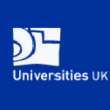Saturday, January 5. 2008
Peter Suber's two masterly rebuttals say it all.
 Predictably, the Association of American Publishers and the International Association of Scientific, Technical and Medical Publishers are airing, yet again, their familiar, flawed and fruitless arguments against the US NIH Green OA Self-Archiving Mandate. They had invoked the very same arguments to try to prevent Green mandates from being adopted in the first place, both in the UK and the US, and their every point has already been rebutted many, many times before.
The anti-mandate lobby has failed, deservedly, first in the UK, and now in the US. (Timid Europe will now soon follow through too, for a clean sweep.) Having been unable to prevent the adoption of Green OA Self-Archiving Mandates, the lobby is now trying desperately to delay their implementation.
Peter answers them, point for point.
So let us now confidently update our stance, noting that the anti-mandate lobby's machinations are behind us now, a spent force. OA is inevitable, and optimal for research, researchers, their institutions, their funders, the tax-paying public and the vast R&D industry. What the research community needs to do with full vigor now is to implement Green OA mandates worldwide, at all institutions, in all disciplines.
(Then the publishing community can begin doing what it should have been doing all along: adapting to the new OA reality, in the service of the research community, and the best interests of research itself. rather than just trying to fend it off.)
Stevan Harnad
American Scientist Open Access Forum
Tuesday, January 1. 2008
 Universities UK Research Information and Management Workshop London 6 December 2008 Universities UK Research Information and Management Workshop London 6 December 2008 EurOpenScholar
Professor Bernard Rentier, Rector, University of Liege
The whole picture: the overall scholarly information landscape
Dr Alma Swan, Director, Key Perspectives Ltd
Mandates and Metrics: How Open Repositories Enable Universities to Manage, Measure and Maximise their Research Assets
Professor Stevan Harnad, Université du Québec à Montéal & University of Southampton
Optimising research management and assessment processes; the role of funders
Professor David Eastwood, Chief Executive, HEFCE
Overview: outline of the evolution of scholarly information, what advantages new changes will bring and economic impact for the UK
Dr. Michael Jubb, Director, Research Information Network
[addendum: US NIH Mandate ]
Thursday, December 27. 2007
 The US NIH Green OA Self-Archiving Mandate was made law on December 26 2007 The US NIH Green OA Self-Archiving Mandate was made law on December 26 2007
Worldwide, that now makes 21 funder mandates, 11 institutional mandates, and 3 departmental mandates, plus 5 proposed funder mandates, 1 proposed institutional mandate, and 2 proposed multi-institutional mandates -- a total of 35 mandates already adopted and 8 more proposed so far. See ROARMAP.
2008 will now be the year of institutional Green OA self-archiving mandates. Research funder mandates cover funded research output in the funder's field. Institutional mandates cover all of research output, across all fields and nations.
The optimal way for funder and institutional mandates to complement one another and to ensure that mandates swiftly and systematically scale up to encompass all of research output worldwide is for both kinds of mandates to require deposit directly in the researcher's own Institutional Repository. Central Repositories, indexers, and search engines can then harvest from the distributed network of OAI-interoperable Institutional Repositories.
Stevan Harnad
American Scientist Open Access Forum
Tuesday, November 13. 2007
 From Peter Suber's Open Access News: From Peter Suber's Open Access News:
" The headline says it all, but here's some detail from Jennifer Loven for the Associated Press": President Bush, escalating his budget battle with Congress, on Tuesday vetoed a spending measure for health and education programs prized by congressional Democrats....
The president's action was announced on Air Force One as Bush flew to New Albany, Ind., on the Ohio River across from Louisville, Ky., for a speech criticizing the Democratic-led Congress on its budget priorities.
In excerpts of his remarks released in advance by the White House, Bush hammered Democrats for what he called a tax-and-spend philosophy....
More than any other spending bill, the $606 billion education and health measure defines the differences between Bush and majority Democrats. The House fell three votes short of winning a veto-proof margin as it sent the measure to Bush.
Rep. David Obey, the Democratic chairman of the House Appropriations Committee, pounced immediately on Bush's veto.
"This is a bipartisan bill supported by over 50 Republicans," Obey said. "There has been virtually no criticism of its contents. It is clear the only reason the president vetoed this bill is pure politics."
Since winning re-election, Bush has sought to cut the labor, health and education measure below the prior year level. But lawmakers have rejected the cuts. The budget that Bush presented in February sought almost $4 billion in cuts to this year's bill.
Democrats responded by adding $10 billion to Bush's request for the 2008 bill. Democrats say spending increases for domestic programs are small compared with Bush's pending war request totaling almost $200 billion....
Comments (from Peter Suber): -- First, don't panic. This has been expected for months and the fight is not over. Here's a reminder from my November newsletter: "There are two reasons not to despair if President Bush vetoes the LHHS appropriations bill later this month. If Congress overrides the veto, then the OA mandate language will become law. Just like that. If Congress fails to override the veto, and modifies the LHHS appropriation instead, then the OA mandate is likely to survive intact." (See the rest of the newsletter for details on both possibilities.)
-- Also as expected, Bush vetoed the bill for its high level of spending, not for its OA provision.
-- Second, it's time for US citizens to contact their Congressional delegations again. This time around, contact your Representative in the House as well as your two Senators. The message is: vote yes on an override of the President's veto of the LHHS appropriations bill. (Note that the LHHS appropriations bill contains much more than the provision mandating OA at the NIH.)
-- The override vote hasn't yet been scheduled. It may come this week or it may be delayed until after Thanksgiving. But it will come and it's not too early to contact your Congressional delegation. For the contact info for your representatives (phone, email, fax, local offices), see CongressMerge.
-- Please spread the word!
Peter Suber: Open Access News
Friday, November 9. 2007
 Comment on: Comment on: " Bibliometrics could distort research assessment"
Guardian Education, Friday 9 November 2007 [but see follow-up]
Yes, any system (including democracy, health care, welfare, taxation, market economics, justice, education and the Internet) can be abused. But abuses can be detected, exposed and punished, and this is especially true in the case of scholarly/scientific research, where "peer review" does not stop with publication, but continues for as long as research findings are read and used. And it's truer still if it is all online and openly accessible.
The researcher who thinks his research impact can be spuriously enhanced by producing many small, "salami-sliced" publications instead of fewer substantial ones will stand out against peers who publish fewer, more substantial papers. Paper lengths and numbers are metrics too, hence they too can be part of the metric equation. And if most or all peers do salami-slicing, then it becomes a scale factor that can be factored out (and the metric equation and its payoffs can be adjusted to discourage it).
Citations inflated by self-citations or co-author group citations can also be detected and weighted accordingly. Robotically inflated download metrics are also detectable, nameable and shameable. Plagiarism is detectable too, when all full-text content is accessible online.
The important thing is to get all these publications as well as their metrics out in the open for scrutiny by making them Open Access. Then peer and public scrutiny -- plus the analytic power of the algorithms and the Internet -- can collaborate to keep them honest. Harnad, S. (2007) Open Access Scientometrics and the UK Research Assessment Exercise. In Proceedings of 11th Annual Meeting of the International Society for Scientometrics and Informetrics 11(1), pp. 27-33, Madrid, Spain. Torres-Salinas, D. and Moed, H. F., Eds. Stevan Harnad
American Scientist Open Access Forum
Friday, October 19. 2007
 Richard Poynder, the de facto chronicler of the Open Access Movement (and beyond), has at long last done one of his characteristically probing and always insightful interviews with "the de facto leader of the open access (OA) movement," Peter Suber. Read, learn, and admire.
Has anybody noticed
on the QWERTY keyboard
if you overshoot OA
then you have typed
PS?
Saturday, July 14. 2007
 Slides for the presentation (in Portuguese and English) Acesso livre:
Que? Por quê? Como? Onde? Quando?
Métricas e mandatos
at the 59th Annual Meeting of the Brazilian Society for the Progress of Science -- Sociedade Brasileira para o Progresso da Ciência (SBPC) -- session on Publicar ou Perecer: Acesso Livre é Sobreviver ("Publish or Perish: Open Access and Survive") Belém, Brazil, 8-10 July 2007, are available as: PDF or PPT
Sunday, July 1. 2007
 In his series " The OA Interviews," journalist Richard Poynder, a specialist in digital rights issues, interviews me (Stevan Harnad) about " Open Access: From Glottogenesis to the Category Commons".
Another interview (by Ligia Café; and Hélio Kuramoto) appears (in Portuguese and English) in Encontros Bibli.
Tuesday, March 27. 2007
 Readers of this blog who do not regularly read Peter Suber's splendid Open Access News (OAN) should! OAN provides a wealth of immediate information about OA developments. It has been my first (and most frequent) daily port of call for years now.
Yesterday Peter did two characteristically fair and gentle -- but resolutely firm -- rejoinders to the increasingly shrill (but remarkably shallow) attempts by representatives and partisans of some -- certainly not all, possibly not even most -- sectors of the journal publishing industry to oppose the growing number of Green OA self-archiving mandates being adopted and proposed by research funders and universities worldwide.
The two articles Peter rebuts are by Brian Crawford, Chairman of the PSP Executive Council of AAP and an editorial by the CEO of ALPSP about a similar -- but somewhat more reasoned -- article by Nevada librarian Rick Anderson. As usual, the claim is that the Green OA self-archiving mandates that have been adopted and proposed will destroy journals and peer review by destroying subscription income. As usual, the reply is that (1) there is to date no evidence at all that Green OA self-archiving will not co-exist peacefully with subscription-based cost-recovery, but (2) if and when it no longer does, then there will be a conversion to Gold OA publishing-fee-based cost-recovery, paid for out of the very same money that institutions now spend on subscriptions, money they would have saved in having cancelled subscriptions (not money redirected from research). But the fact that 100% OA is both attainable via the Green OA mandates and highly beneficial -- to research, researchers, research institutions, research funders, the vast R&D industry, students, the developing world, and the tax-paying public that funds the research -- is beyond dispute. Research is not funded and conducted in order to guarantee the journal publishing industry's current revenue streams and current ways of doing business.
For Peter's much gentler rebuttals, please see: Crawford PSP/AAP Rebuttal and Anderson ALPSP Rebuttal
Stevan Harnad
American Scientist Open Access Forum
Saturday, February 17. 2007
 My impressions of the Brussels EC Meeting:  (1) The petition demonstrating the very broad-based support for the proposed EC OA Self-Archiving Mandate was presented to the EU Commissioner for Science and Research, Janez Potocnik. (1) The petition demonstrating the very broad-based support for the proposed EC OA Self-Archiving Mandate was presented to the EU Commissioner for Science and Research, Janez Potocnik.
(2) The conference itself (which was organized before the petition) then proceeded with its programme, heavily weighted toward publishing and publishers' concerns rather than the access and impact concerns of the research community.
(3) Hence, predictably, most of the time and energy was spent on publishing finances rather than on research access and impact.
(4) Nevertheless, the overall impression (from the minority research and researcher representation at the meeting) was that the relentless focus on publishing finances was not their primary concern, Open Access was.
(5) The (rather bland) statement released at the beginning of the meeting had also been drafted before the meeting and the petition (and apparently with some involvement of the publishers, as there was evidence that they had seen it in advance).
(6) But my impression was that the EU Commissioners, Directors-General and Directors (or rather those of their delegates who were in attendance) were favorable to OA, and that concrete developments can be expected as a result of the conference and the petition.
Researcher and industrial support for OA and OA Self-Archiving Mandates will now be very vigorously consolidated.
Stevan Harnad
PS I think a bit of a storm is now brewing in the physics community over the CERN initiative to promote an immediate transition to Gold OA publishing in particle physics. The concern is that this will divert scarce funds from research. I think the concern is warranted: that it is indeed premature to push toward gold OA when most fields [including many parts of physics] don't yet have green OA. CERN should work to generalise its own admirable and successful green OA self-archiving mandate to the rest of the world, and meantime make use of the complementarity between conventional publication and green OA, co-existing in parallel, rather than needlessly pressing for an immediate transition to gold OA publishing at a time when gold OA is neither needed -- publication still being funded by (and potential publication funds still tied up in) subscription expenditures -- nor are funds available to pay for gold OA without taking them from elsewhere, most probably research. Gold fever also distracts from the pressing, immediate basic need for OA itself, as well as from green OA's immediate availability, at no cost. We need to stop fussing about publishing and publishing costs, and focus on access, and providing it in the fastest and surest way available: by mandating green OA self-archiving.
|





 Slides for the presentation (in Portuguese and English)
Slides for the presentation (in Portuguese and English)  In his series "
In his series "


